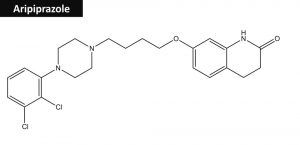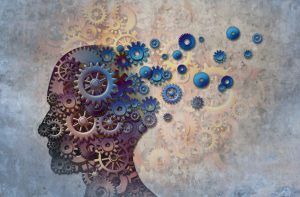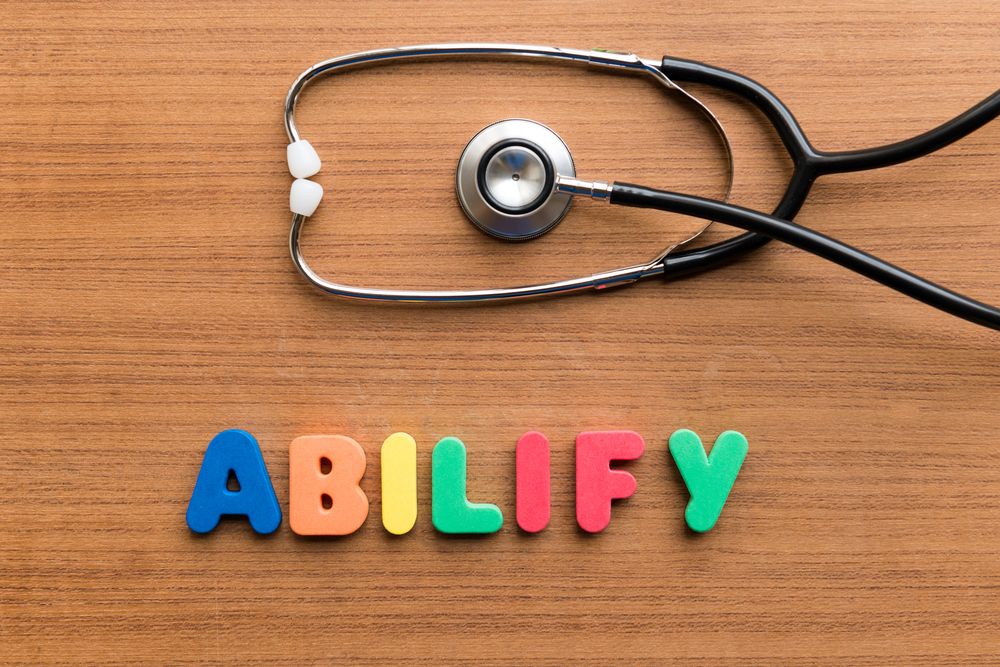How Effective Is Abilify for Treating Depression?
Abilify is an antipsychotic medication (Learn More) that works by affecting several different neurotransmitters. (Learn More) Abilify is approved for several different uses, including as an adjunct medication to treat major depressive disorder, or MDD. (Learn More) MDD refers to clinical depression, not just everyday sadness. (Learn More) There is research that suggests that Abilify can be used as an add-on medication in the treatment of MDD. (Learn More) Like all antipsychotics, there are some potential side effects associated with taking Abilify. (Learn More) You might want to investigate some alternatives to using an antipsychotic medication to treat MDD. (Learn More)
What Is Abilify?
Abilify (aripiprazole) is an atypical antipsychotic medication or second-generation antipsychotic. Drugs in this class are used more often to treat psychosis because they have fewer side effects than first-generation antipsychotic medications. Some can be used to treat depression, but only as a secondary or add-on medication to bolster the effects of antidepressants.

How Does Abilify Work?
Abilify is classified as a partial agonist (partially enhances the actions) for the dopamine D2 and D3 receptors and the serotonin 5-HT1A receptors. It is also an antagonist (blocks the actions) of the serotonin 5-HT(2A) receptors in the brain. It is a second-generation antipsychotic drug due to its actions on the neurotransmitter serotonin; first-generation antipsychotics primarily act on dopamine. By rebalancing dopamine and serotonin in the brain, it is believed that Abilify can treat several different mental health disorders. Most of the first-generation antipsychotic drugs had serious side effects associated with their use. Second-generation antipsychotics have fewer side effects; therefore, their use is preferable to the use of older first-generation antipsychotics in most cases.
What Are the Approved Uses for Abilify?
Abilify was initially approved to treat the psychotic disorder schizophrenia. Other research studies have expanded its uses. In addition to treating schizophrenia, it is approved by the Food and Drug Administration (FDA) to treat:
Mania in bipolar disorder.
Mixed episodes of bipolar disorder (experiencing mania and depression together).
Irritability in people with autism.
Tics associated with Tourette’s syndrome.
Agitation that occurs in schizophrenia and bipolar disorder.
It is also used as an adjunctive treatment for people diagnosed with major depressive disorder (MDD).

What Is MDD?
When a medication is approved to treat depression, it means it is designed to address the symptoms of major depressive disorder (MDD). MDD is a clinical syndrome or formal psychiatric diagnosis that is made based on a person meeting specific diagnostic criteria. MDD does not refer to normal feelings of sadness, mood swings, daily ups and downs, common problems with motivation, or everyday types of mood swings that you may experience. It is a clinical syndrome that must be professionally diagnosed. The person must exhibit at least five of nine potential symptoms consistently over a two-week period to be diagnosed with MDD. If you are having issues with depression and you think you may have MDD, discuss the situation with your physician or a licensed mental health clinician to get a diagnosis. Abilify is only approved to be used in conjunction with an antidepressant medication (a medication that is specifically designed to treat depression). It is not approved as a sole treatment for depression.

Research That Supports the Use of
Many research studies have indicated that when Abilify is used in conjunction with antidepressant medication, depressive symptoms resolve more efficiently, particularly in people with MDD who were not responding to the use of an antidepressant medication alone. Since the initial studies to get FDA approval to use Abilify in the treatment of depression were published, other studies have replicated the success of Abilify and other antipsychotics in enhancing the effects of antidepressant medications. However, much of the research is limited to a short window of time; typically, studies only cover treatment periods of 6 to 14 weeks. Long-term use of antidepressant medications with Abilify to treat depression remains relatively under researched.
What Are the Side Effects?
Any time you take a medication or other substance that alters the levels of chemicals in your body, there is a potential to experience many different effects, including positive and negative effects. The following are the primary side effects associated with Abilify:
Lethargy or drowsiness
Dizziness or headache
Stomach pain, diarrhea, or constipation
Nervousness
Increased appetite and possible weight gain
Stiffness or pain in the extremities
There is also the potential for serious side effects, such as allergic reactions, problems with breathing, and seizures. Other serious potential effects may include:
Tardive dyskinesia or abnormal involuntary movements (most often of the face) that can be permanent if not addressed early.
Suicidal thoughts, particularly in adolescents or children.
Neuroleptic malignant syndrome, which may produce fever, confusion, sweating, altered heart rate, blood pressure changes, and extreme muscle stiffness. This syndrome can be fatal, but it is very rare (occurs in less than 1 percent of patients).
Abilify is not approved for use in children.
Are There Alternatives to Abilify?
When you take an antidepressant medication to address MDD, the benefits of the antidepressant will typically not be apparent for several weeks. Adding Abilify to an antidepressant medication to treat MDD may also not produce results for several weeks. If your treating physician decides to add Abilify or some other antipsychotic medication to your antidepressant medication, this typically means that the antidepressant has not been effective over a significant period of time. You may have gone through several different antidepressant medications with little success in treating your MDD. Other antipsychotics could be used instead of Abilify. A preferred approach, which is very successful in the long run, is to combine antidepressants with therapy for MDD. According to clinical sources, such as the book A Guide to Treatments That Work, cognitive behavioral therapy (CBT) has been shown to be particularly effective in treating MDD. It can provide lasting effects. If you are suffering from MDD and are not in therapy, this is the best option to assist your antidepressant medication. However, psychotherapy involves work and just like medications, it is not always effective for everyone.
A Tailored Approach
The approach to treating major depressive disorder is individual. Ideally, you’ll be working with a doctor and a therapist to develop the best treatment approach. This may include the use of Abilify in conjunction with antidepressants in some cases. In addition, therapy is generally recommended for the treatment of depression.
References
Abilify (official site). (2018). Otsuka Pharmaceuticals, Inc.
Aripiprazole Indications: FDA-Approved and Off-Label Uses. (July 2017). Psychopharmacology Institute. (2013). The Diagnostic and Statistical Manual of Mental Disorders – Fifth Edition. American Psychiatric Association.
Aripiprazole (Abilify): Depression, Major Depressive Disorder (MDD) Common Drug Review. (November 2016). Canadian Agency for Drugs and Technologies in Health.
Aripiprazole. (February 2019). National Library of Medicine.
A Guide to Treatments That Work. (2015). Oxford University Press.

Related Articles

10 Popular Statin Medications - Comparison, Side Effects & How They Work
Statins are among the most commonly prescribed...

Pregabalin vs Gabapentin - Comparison Guide & Similarities
Pregabalin vs Gabapentin, are both classified as...

Zepbound vs Mounjaro Comparison Guide: Similarities, Side Effects & More
Zepbound vs Mounjaro Comparison Guide...

Aleve vs Advil - What's The Difference? Comparing These NSAIDs
SaveHealth a prescription website compares Aleve vs Advil...
